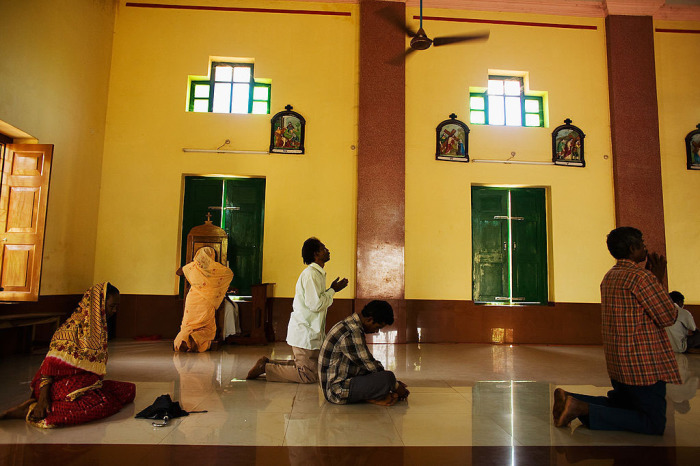India: Over 50 churches stop holding worship services after authorities impose ban on Christian gatherings

Dozens of churches in India were not allowed to hold worship services for a third consecutive Sunday after authorities imposed a complete ban on Christian religious gatherings at the behest of radical Hindu nationalist groups, according to a report.
More than 50 house churches in the Jhabua District of Madhya Pradesh state were not allowed to gather for worship on Sundays due to the Sub-Divisional Officer issuing a circular to police stations in the Thandla and Megnagar blocks declaring a complete ban on Christian gatherings that do not have permission from the local magistrate, the U.S.-based persecution watchdog International Christian Concern reported.
The circular was distributed at the behest of the Vishwa Hindu Parishad (World Hindu Council) and other radical Hindu nationalist groups, ICC said, quoting local sources, adding that Christians are concerned they will no longer be allowed to exercise their religious freedom rights, guaranteed to them by India’s constitution.
“I read the circular last Friday and decided not to have worship on Sunday,” a local pastor was quoted as saying. “The last five months have been difficult. Our congregation has been reduced from 40 members to 15. Even these 15 are now scared.
“I know as a pastor that I need to endure hardships and persecution for my faith. But I am worried about those who are showing interest and coming newly to worship with us.”
Local authorities have also previously sent out similar notices to Christian leaders in the district, demanding they show evidence of their legal conversion to Christianity.
Over 300 pastors and Christian leaders have met with authorities and submitted a memorandum to defuse the situation, but little has changed.
Madhya Pradesh is one of the several Indian states that have “anti-conversion” laws, which presume that Christians “force” or give financial benefits to Hindus to convert them to Christianity.
While some of these laws have been in place for decades in some states, no Christian has been convicted of “forcibly” converting anyone to Christianity. These laws, however, allow Hindu nationalist groups to make false charges against Christians and launch attacks on them under the pretext of the alleged forced conversion.
The law states that no one is allowed to use the “threat” of “divine displeasure,” meaning Christians cannot talk about Heaven or Hell, as that would be seen as “forcing” someone to convert. And if snacks or meals are served to Hindus after an evangelistic meeting, that could be seen as an “inducement.”
While Christians make up only 2.3% of India’s population and Hindus comprise about 80%, radical Hindu nationalists have been carrying out attacks on Christians under the pretext of punishing the minority for using force or monetary rewards to convert Hindus to Christianity.
India ranks as the 10th worst country globally when it comes to Christian persecution, according to Open Doors USA’s 2021 World Watch List. The U.S. Commission on International Religious Freedom has urged the U.S. State Department to label India as a “country of particular concern” for engaging in or tolerating severe religious freedom violations.
Open Doors USA warns that since the ruling Hindu nationalist Bharatiya Janata Party took power in 2014, persecution against Christians and other religious minorities has increased.
The group reports that “Hindu radicals often attack Christians with little to no consequences.”
“Hindu extremists believe that all Indians should be Hindus and that the country should be rid of Christianity and Islam,” an Open Doors fact sheet on India explains. “They use extensive violence to achieve this goal, particularly targeting Christians from a Hindu background. Christians are accused of following a ‘foreign faith’ and blamed for bad luck in their communities.”
Human rights groups in India said last month they had documented over 300 incidents of Christian persecution in just the first nine months of 2021, warning that this year might be the worst in terms of the number of such incidents in the country’s history.





























